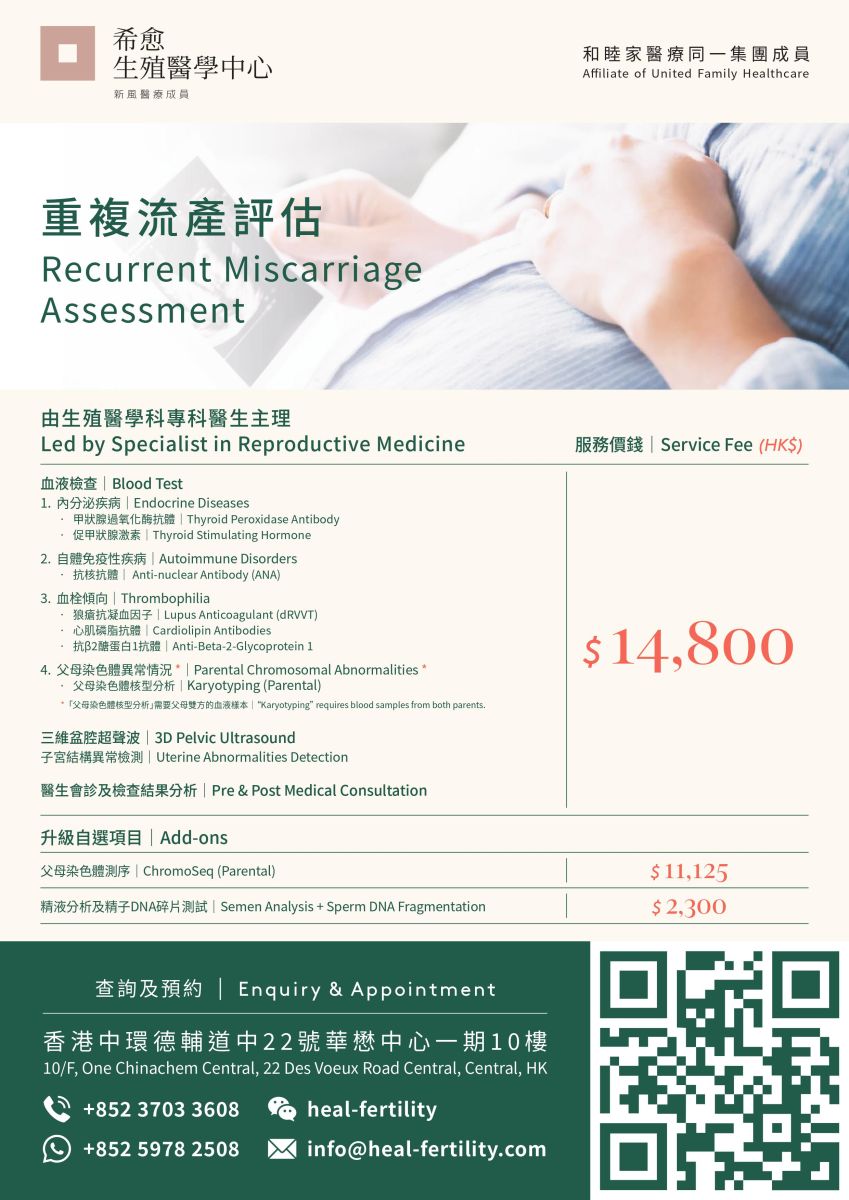
Treatment Options for Recurrent Pregnancy Loss (Recurrent Miscarriages)
Recurrent Pregnancy Loss (RPL) / Recurrent Miscarriages
Recurrent pregnancy loss (RPL) / Recurrent Miscarriages brings profound sadness and disappointment to couples who desire to have children. It represents an even greater emotional and physical burden, and subsequent pregnancies are inevitably accompanied by anxiety. Recurrent pregnancy loss is defined as the occurrence of two or more consecutive natural pregnancy losses. Globally, approximately 1-2% of couples experience recurrent pregnancy losses.
Most pregnancy losses are due to sporadic chromosomal abnormalities, and the chance of them being caused by chromosomal abnormalities in both spouses is very low. Among these sporadic chromosomal abnormalities, most are trisomic, and the incidence of trisomy is related to the age of pregnancy. Statistics show that for women under the age of 35, the chance of pregnancy loss in 6-12 weeks is about 9% to 12%. But over the age of 35, as the chance of trichromosomal abnormalities increases, so does the risk of pregnancy loss. Women over 40 have a pregnancy loss rate as high as 30-50%.
Half of the couples have an identifiable cause, which may be:
- Parental chromosomal abnormalities (balanced translocation): 2%-5%
- Uterine abnormalities (including congenital uterine anomalies, adenomyosis, and cervical incompetence ): 10-15%
- Autoimmune disorders and thrombophilia (including antiphospholipid syndrome): 15-20%
- Endocrine diseases (e.g. diabetes mellitus, polycystic ovary syndrome, thyroid disorders): 15%
- Idiopathic (maternal obesity may be one of the risk factors): 50%
- Other risk factors of miscarriages include parental age, obesity, smoking, and drug abuse
Treatment Options
The management and treatment of recurrent pregnancy losses involve a comprehensive evaluation including:
- detailed medical history taking and genetic testing
- blood tests (lupus anticoagulant factor, anticardiolipin antibody, anti-beta2 glycoprotein-I antibody, glycated hemoglobin, thyroid function)
- uterine evaluation by 3D pelvic ultrasound or other imaging
- semen analysis including sperm DNA fragmentation
to identify any potential causes that may contribute to the condition.
A majority of cases have unidentified causes (~50%). For women with a history of recurrent pregnancy losses, they could consider Preimplantation genetic testing for aneuploidy (PGT-A) to screen their embryos (through IVF treatments) for any chromosomal abnormalities and therefore to improve the likelihood of a successful pregnancy.
Learn more: 3D pelvic ultrasound, Preimplantation Genetic Test





